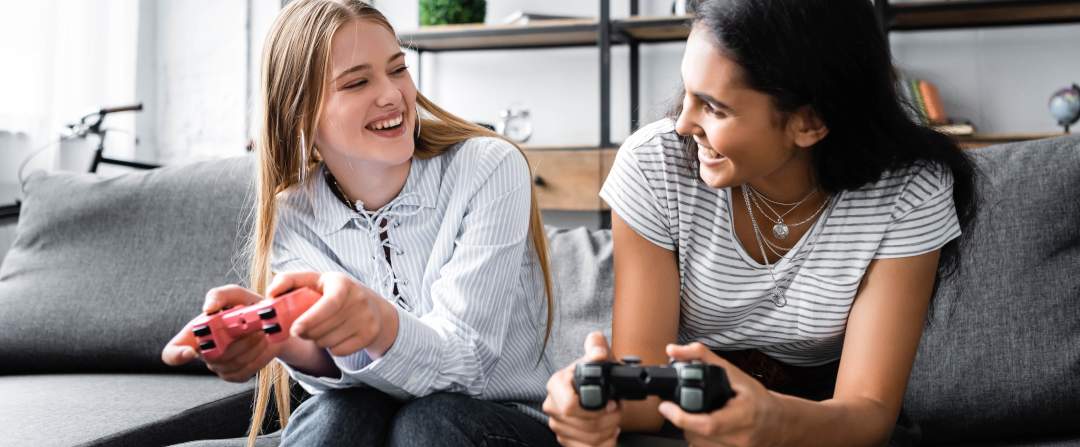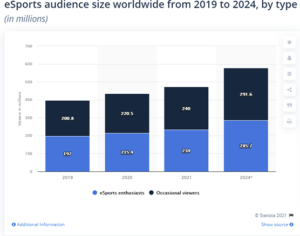eSports (professional gaming) have grown at an incredible pace. Attracting enormous prizes and even bigger viewership’s than traditional sports such as the NFL or English Premier League. Despite the massive growth, and clear interest from kids – most parents are still confused by eSports. Why do kids watch videos, of other children playing games? Is gaming bad for kids? Does it teach them anything? Here’s what Shae Williams, mother to a professional gamer, had to say…
How did your child get into competitive eSports?
My son found his way into competitive eSports, playing Fortnite when he was 13. At first it was just fun, playing video games after his homework to unwind. As he got older he focused more on video games. Even with the gaming, he was very physically active and played lots of sports.
Like most parents, I wanted him to keep doing physical sports, but I noticed that the friends he gamed with online were closer to him – than the people he knew in school. He developed deeper relationships with people online. It built his confidence too. Simply because he was good at it, and he really enjoyed it.
Who does he play with & where are they from?
His friends are from everywhere. Gaming makes him a great global citizen. At such a young age, he’s already working with a global team. Learning about teamwork and developing business skills such as contract negotiation.
What’s the difference between gaming and traditional (offline) sports?
Kids see professional soccer the same as professional Fortnite. That’s something parents don’t understand. We see gaming as a vice. We’ll happily take out kids to football or golf practice – but most parents will discourage gaming practice.
That’s a constant source of conflict between children and their parents. “My mum hates gaming” is a really common complaint from kids.
Parents need to engage in gaming this with their kids. It’s not passive screen time like watching TV. This can be incredible family time, playing, spectating, or discussing gaming.
There’s an etiquette around gaming that most parents don’t seem to understand. You wouldn’t stop a child from playing a football match with his friends just because someone had come to visit. It’s the same thing for computer games. They’re playing a game with friends, and we need to respect that.
Does Professional gaming / eSports impact his studies?
Not at all. Whilst he’s planning to go to university a year late, he’s super smart and has high grades. So I’m not worried about education. For kids that are playing in leagues or tournaments, my recommendation to parents is that they study 5-6 hours every day. More if the grades aren’t always up.
As a professional gamer, he has a very hectic schedule, but he still studies, reads & does a work-out every day – before any serious gaming or streaming. Only the very best of players would put studies on hold to play.
Is there a lot of gender or cultural diversity in gaming?
Gaming is a great equalizer. Your physical abilities and gender have no impact, since you’re online. Whatever their condition, they can participate. As an example, my son has a huge number of deaf followers. He’s friends with EWOK, and keeps closed captions enabled. They talk to everybody through live chat.
What’s interesting is how we approach gaming as parents. When kids are young we encourage both genders to play the same games. By age 11/12 gaming seems to be considered an activity for boys – and that bothers me. Because by the time they’re teenagers, it’s very male dominated.
How is the world of professional gaming changing?
Gaming used to be very niche. Today, there are bigger organizations from the traditional sports world getting involved – like David Beckham. It will become a lot more accessible. With such enormous viewership numbers, it won’t be long before main stream media realizes that this is what kids are watching. They don’t just want Netflix all day. This is on it’s way to become a mainstream spectator sport.




